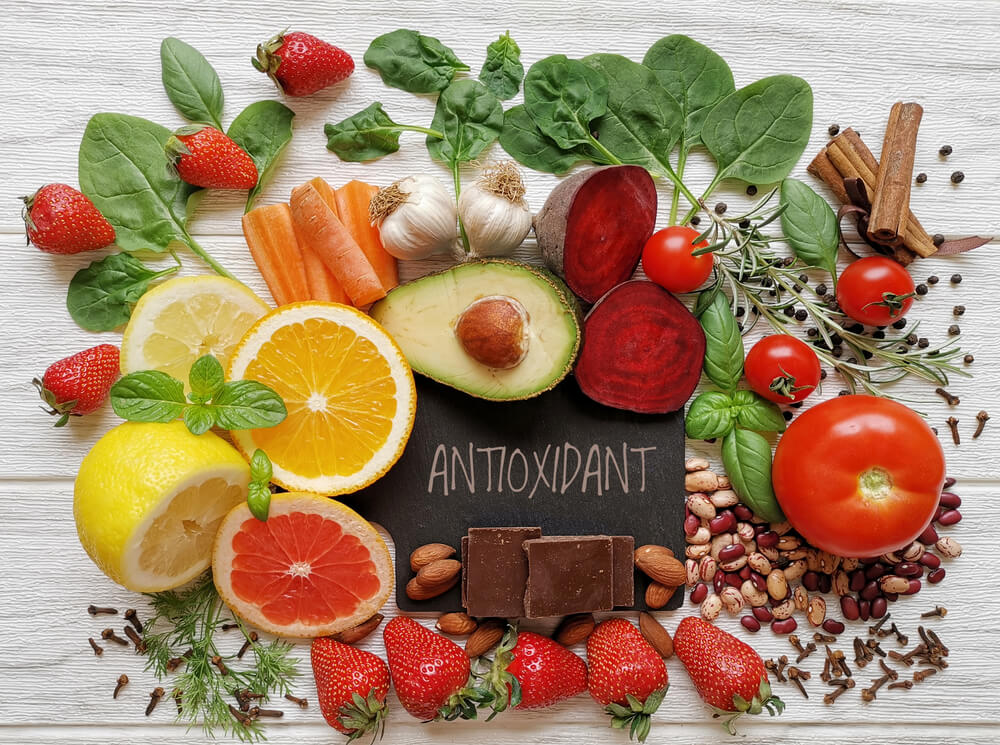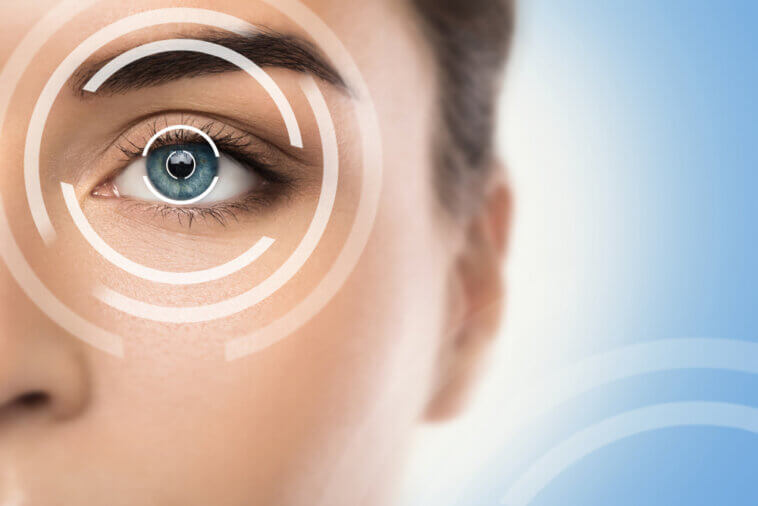Table of Contents
One of the most common visual defects is myopia, also known as nearsightedness, and it is almost always an acquired condition. Myopia is caused by emotional stress, most commonly from competing with other students or the pressure of peer pressure and authority figures. When a child is forced to read or perform other boring tasks at school, this mental stress is often a contributing factor. Avoiding this stress is one of the best ways to improve eyesight naturally. It is also important to avoid looking at unfamiliar objects, such as books or TV, as familiar ones do not require any additional effort.
Exercise

Taking regular breaks and spending more time in natural light are two simple ways to improve eyesight. In addition to these exercises, holistic eye doctors recommend doing several eye circles to strengthen and relax the eyes. One eye circle involves rolling the eyes in a circular motion 20 times. Then, relax for 10 seconds. Repeat the process on the other eye. This exercise can help correct problems with blurred vision. It's also good for the body.
Another eye exercise is the thumb eye exercise, which requires the use of a thumb. The thumb moves toward and away from the eye while breathing deeply. It takes anywhere from two to five minutes and helps strengthen the eye muscles. Digital devices can be harmful to the eyes, so it's important to perform eye exercises regularly to improve vision and prevent problems. Exercises such as thumb eye exercises can help you avoid vision problems by strengthening the muscles that support the eyes.
Moreover, eye exercises are not effective for everyone. Though there are many fad methods that claim to improve eyesight, none of them are scientifically proven. The Bates Method recommends palming the eyeball, the Yan Bao Jian Cao suggests applying acupressure to the eyeball, and so on. None of these exercises have been verified to be more than placebos. The best way to improve eyesight naturally is to focus on physical conditioning and a balanced diet.
Nutrition
You can improve eyesight naturally by eating foods rich in certain nutrients. A diet rich in these nutrients helps repair damaged eye cells. Some good examples are cod liver oil, sweet potatoes, butter, grapes, blueberries, spinach, and collard greens. Other foods rich in these nutrients are Brussels sprouts and spinach. Eating these vegetables can also help relax your eyes. This is especially useful at night when your eyes have time to relax and repair.
Dark leafy vegetables, such as kale, are a great way to improve your eyesight. They are a great source of lutein and zeaxanthin, two powerful antioxidants. Eating more spinach will help you reduce the risk of developing cataracts and macular degeneration, which are both eye-damaging conditions. You should also include carrots in your diet, as they are high in beta-carotene, which is a precursor to vitamin A.
Sunflower seeds and leafy green vegetables are excellent sources of vitamins C and E. Both help prevent eye disease and increase the immune system's functionality. Zinc is a great antioxidant, which helps the body absorb vitamin A. Other vegetables rich in zinc improve your eye health. Lastly, eating plenty of good fats is important for your eye health. Omega-3 fatty acids are particularly beneficial for eye health. Eat plenty of these foods, especially the ones that contain vitamin E.
Lifestyle habits

While it's impossible to cure poor eyesight overnight, there are several lifestyle habits that can help you maintain a healthy vision for years to come. Eating leafy greens, eating fish rich in omega-3 fatty acids, and taking a break from screens all contribute to healthy vision. Although many of these habits seem simple, they can have a significant effect on your eyesight. Furthermore, some of these practices can help you reduce your risk of developing myopia and improve your eyesight in the process.
Eating a diet rich in vitamins and minerals is important for good vision and protection from eye diseases. Dark leafy vegetables, fruits, and fish with high omega-3 fatty acids are essential for healthy eyes. Exercising regularly helps ensure that blood is flowing properly and helps your eyes retain their natural health. Exercising regularly can also protect your eyesight by training your eye muscles. You can learn more about lifestyle habits that can improve your eyesight naturally by following the links below.
Increasing your intake of Omega-3 fatty acids, found in nuts and cold-fish, can help protect your eyesight and prevent age-related eye problems. Consuming white vegetables can also benefit your eyesight. It is also important to limit your intake of sugar, which is bad for the eyes and can worsen your eyesight. Lastly, exercising regularly can improve your vision and reduce stress. By doing so, you can reduce your risk of obesity and type 2 diabetes.
Vitamins
The body's cells produce eye-healthy antioxidants, which help protect the retina from damage and slow down the progression of macular degeneration. These nutrients also prevent cataracts, which cloud the lens and impair the ability to focus light. Antioxidants improve the immune system and lower inflammation – two of the root causes of most diseases. Vitamins A, C and E are particularly important for eye health. Many studies have shown that these nutrients improve vision.
These antioxidants protect the eye against damage caused by free radicals, and they are found in many fruits and vegetables. Eating plenty of vegetables and fruits is another way to boost your eyesight naturally. In addition to their high vitamin content, fruits and vegetables also contain a number of antioxidants that promote eye health. A regular eye exam is also essential to catch eye problems early. It is always advisable to consult with your health care provider before starting a new diet or taking vitamin supplements.
To get the best amount of these nutrients, you must include them in your diet. Raw fruits and vegetables are good sources of vitamins A and C. Avoid overcooking as this destroys antioxidants. Also, cook foods at low temperatures to retain their nutrients. Vitamin A and C can help protect your eyes from age-related eye disorders. The other vitamin A and C in these foods can help you feel more energetic and energized.
Antioxidants

The benefits of antioxidants for the eyes are many. Taking a variety of antioxidant-rich foods can prevent age-related macular degeneration and slow the development of cataracts. However, it's important to remember that these foods need to be part of a balanced diet. Here are the top foods that are high in antioxidants. You can find more information on antioxidants in food labels. And don't forget to drink plenty of water to stay healthy.
Various fruits and vegetables are packed with antioxidants. Blueberries, strawberries, goji berries, blackberries, and cranberries are excellent sources of this vitamin. Orange and yellow vegetables contain pigments that protect the eyes from the sun. They also contain retinol and other important antioxidants. Fish-liver oil and other natural supplements also contain antioxidants. They are also a good source of vitamin E and vitamin C.
Eating foods rich in vitamin E helps prevent age-related eye diseases like AMD. Vitamin E protects the eye's cells and improves the immune system. Foods high in vitamin E include spinach, walnuts, and orange juice. Avocados and olive oil can help your body absorb these antioxidants. These foods can also help your body fight cataracts. You should also eat foods high in lutein and zeaxanthin because they both have antioxidant properties.
Carrots
Eating carrots has been linked to improving eyesight for many years. The beta-carotene contained in carrots is a potent antioxidant, but the amount it provides to the body is small. Nevertheless, studies have shown that beta-carotene can improve night vision in those with extreme vitamin A deficiency. However, the amount of beta-carotene in a single carrot is not nearly enough to improve vision.
Carrots are an excellent source of vitamin A, which is needed for healthy vision. Vitamin A is an essential antioxidant, and if your body lacks it, you're at risk for problems like cataracts, macular degeneration, and xerophthalmia. Besides being an excellent source of vitamin A, carrots contain lutein, another important antioxidant that increases macula pigment density. Boosting macula pigment density is also a proven way to reduce the risk of macular degeneration.
Eating a healthy diet is crucial for the body's well-being. Carrots are full of beta-carotene, a vitamin that helps the eyes convert light into the signal. Carrots can also improve your night vision. Researchers in Nepal and India found that consuming vitamin supplements improved night vision in undernourished individuals. You can get vitamin A supplements by visiting the National Institute of Health. And the benefits of carrots don't stop there.
Red bell pepper
The generous content of vitamin A and C found in the red bell pepper can help improve eyesight. Both lutein and vitamin A are known for their protective properties and can help preserve the retina, which is the backbone of the eye. Consuming these nutrients can help prevent oxidative damage and macular degeneration, which are the leading causes of loss of vision. Several other phytonutrients in the red bell pepper, such as lycopene, act as antioxidants and protect against inflammation.
Researchers have found that red bell peppers can disarm the free radicals linked to cardiovascular disease and cancer. Although red peppers are heart-healthy when eaten raw, they may have a stronger antioxidant effect when cooked. More research is needed to determine how the benefits of red bell peppers in the body translate to humans. However, the antioxidant activity of red bell peppers may have similar effects if eaten in large quantities.
The carotenoid lycopene is the compound responsible for red color in tomatoes. It is an excellent antioxidant, and the redder the tomato, the higher the amount. It protects the inner parts of the eye from harmful light. Blue light from screens, which are a primary cause of macular degeneration, can be absorbed by the macula. The same compounds are found in green bell pepper.




Comments
Loading…